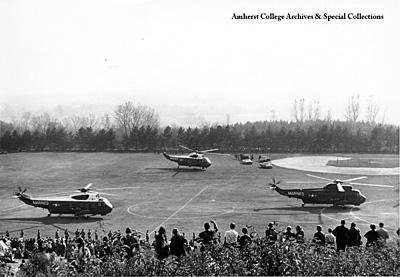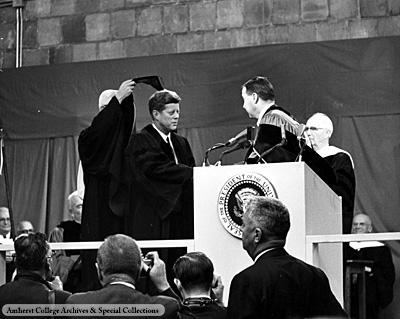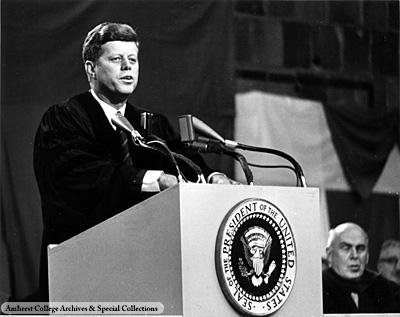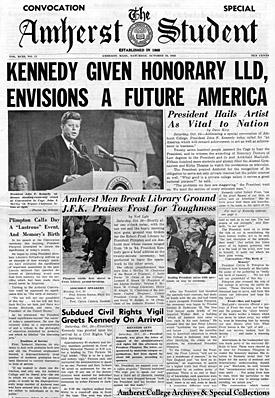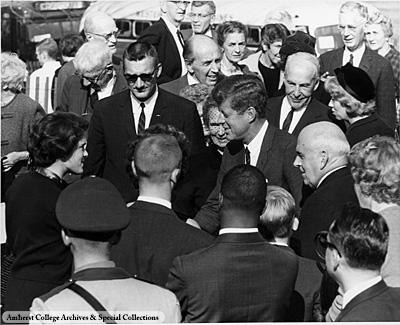signalmankenneth
Verified User
May 3, 2013 |
In defiance of societal trends, a K-8 principal fired all his public school’s security guards and reinvested in the arts, drastically improving grades and test scores in a school that once “had a prison feel,” NBC News reports [3].
Orchard Gardens, of Roxbury, Massachusetts, was founded in 2003, but quickly fell to the bottom of public schools in the state. Of 800 students, “more than 90% qualify for free or reduced lunch, 25% are learning to speak English, and 25% require Individual Education Plans to meet special needs,”according to the pilot school’s website [4].
As NBC’s Katy Tur reported, rampant violence and an oppressive learning environment hampered student growth at Orchard Gardens. Students were prohibited from wearing backpacks, for fear of concealed weapons. More than half of teachers didn’t return after a year on the job.
Then came Andrew Bott in 2010, Orchard Gardens’ sixth principal in seven years, and everything changed.
“A lot of my colleagues really questioned the decision,” Bott told NBC. “A lot of people actually would say to me, ‘You realize that Orchard Gardens is a career killer? You know, you don't want to go to Orchard Gardens.’”
Bott completely cut the school’s security infrastructure and revitalized its art programs. Musical instruments were pulled out of locked storage and returned to classrooms. Faculty reopened dance and art studios that had been out of commission for years.
Within a year, the school already saw “significant increases in the numbers of students reading at grade level and the percent of students proficient on grade level math assessments.” And within three, Orchard Gardens completely transformed. Not only have test scores and grades improved—students are also better behaved.
“We have our occasional, typical adolescent ... problems,” Bott told NBC. “But nothing that is out of the normal for any school.”
Orchard Gardens’ refocus is emblematic of studies [5] linking arts education with academic achievement. A 2012 study by the National Endowments for the Arts found that “At-risk students who have access to the arts in or out of school also tend to have better academic results, better workforce opportunities, and more civic engagement.” Chris Plunkett, a visual arts teacher at Orchard Gardens is starting to see that play out.
“They need something more than test prep and more than learning that there’s only one answer to every problem,” said Chris Plunkett. “Even though they don’t realize how much they’re learning and how much they’re strengthening, it’s happening, and I think that transcends into other areas.”
Eighth grader Keyvaughn Little is also noticing the positive effects of less guards and more arts education. Since Principal Bott switched things up, Little’s grades have improved and he’s even been accepted into the prestigious Boston Arts Academy for high school.
“Now that the teachers actually help me and push me on the right track, I can actually see a future for myself,” Little said. “I've been more open, and I've expressed myself more than I would have before the arts have came.”
Principal Bott and his administration are rightfully proud of their school’s renewal. A statement on the Orchard Gardens website suggests other public schools take a hint:
“Our team believes that the exciting transformation of one of Boston’s lowest performing public schools will serve as a national model for school turnaround.”
By Steven Hsieh

In defiance of societal trends, a K-8 principal fired all his public school’s security guards and reinvested in the arts, drastically improving grades and test scores in a school that once “had a prison feel,” NBC News reports [3].
Orchard Gardens, of Roxbury, Massachusetts, was founded in 2003, but quickly fell to the bottom of public schools in the state. Of 800 students, “more than 90% qualify for free or reduced lunch, 25% are learning to speak English, and 25% require Individual Education Plans to meet special needs,”according to the pilot school’s website [4].
As NBC’s Katy Tur reported, rampant violence and an oppressive learning environment hampered student growth at Orchard Gardens. Students were prohibited from wearing backpacks, for fear of concealed weapons. More than half of teachers didn’t return after a year on the job.
Then came Andrew Bott in 2010, Orchard Gardens’ sixth principal in seven years, and everything changed.
“A lot of my colleagues really questioned the decision,” Bott told NBC. “A lot of people actually would say to me, ‘You realize that Orchard Gardens is a career killer? You know, you don't want to go to Orchard Gardens.’”
Bott completely cut the school’s security infrastructure and revitalized its art programs. Musical instruments were pulled out of locked storage and returned to classrooms. Faculty reopened dance and art studios that had been out of commission for years.
Within a year, the school already saw “significant increases in the numbers of students reading at grade level and the percent of students proficient on grade level math assessments.” And within three, Orchard Gardens completely transformed. Not only have test scores and grades improved—students are also better behaved.
“We have our occasional, typical adolescent ... problems,” Bott told NBC. “But nothing that is out of the normal for any school.”
Orchard Gardens’ refocus is emblematic of studies [5] linking arts education with academic achievement. A 2012 study by the National Endowments for the Arts found that “At-risk students who have access to the arts in or out of school also tend to have better academic results, better workforce opportunities, and more civic engagement.” Chris Plunkett, a visual arts teacher at Orchard Gardens is starting to see that play out.
“They need something more than test prep and more than learning that there’s only one answer to every problem,” said Chris Plunkett. “Even though they don’t realize how much they’re learning and how much they’re strengthening, it’s happening, and I think that transcends into other areas.”
Eighth grader Keyvaughn Little is also noticing the positive effects of less guards and more arts education. Since Principal Bott switched things up, Little’s grades have improved and he’s even been accepted into the prestigious Boston Arts Academy for high school.
“Now that the teachers actually help me and push me on the right track, I can actually see a future for myself,” Little said. “I've been more open, and I've expressed myself more than I would have before the arts have came.”
Principal Bott and his administration are rightfully proud of their school’s renewal. A statement on the Orchard Gardens website suggests other public schools take a hint:
“Our team believes that the exciting transformation of one of Boston’s lowest performing public schools will serve as a national model for school turnaround.”
By Steven Hsieh


